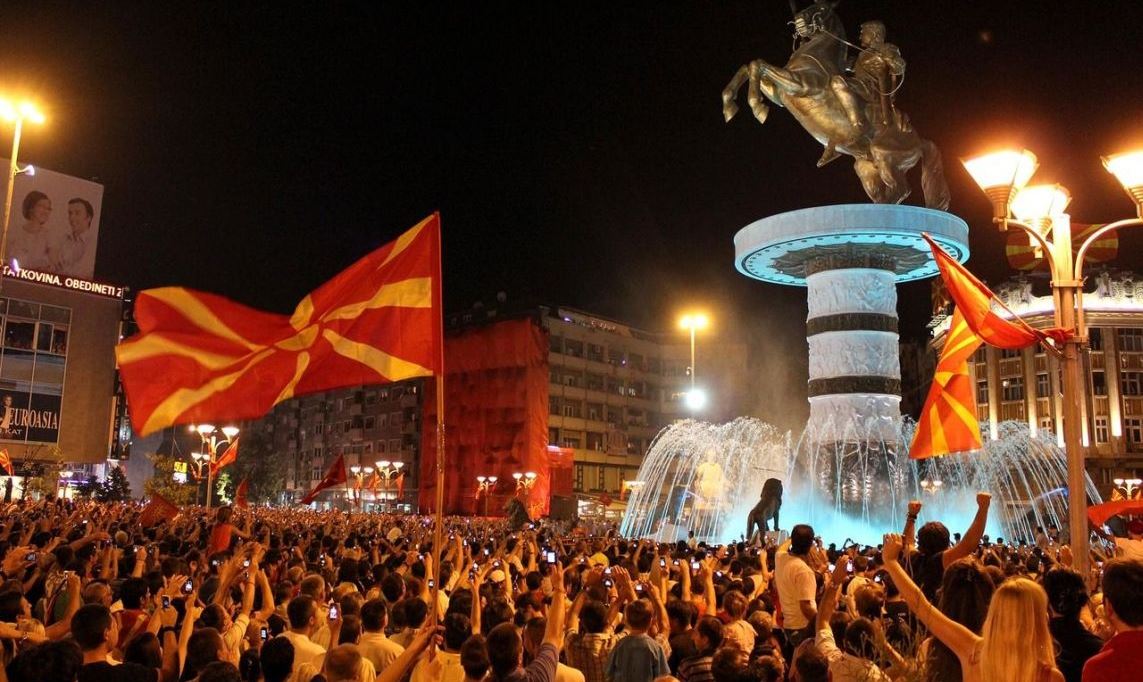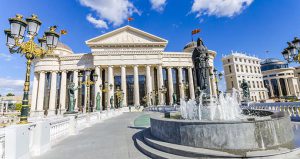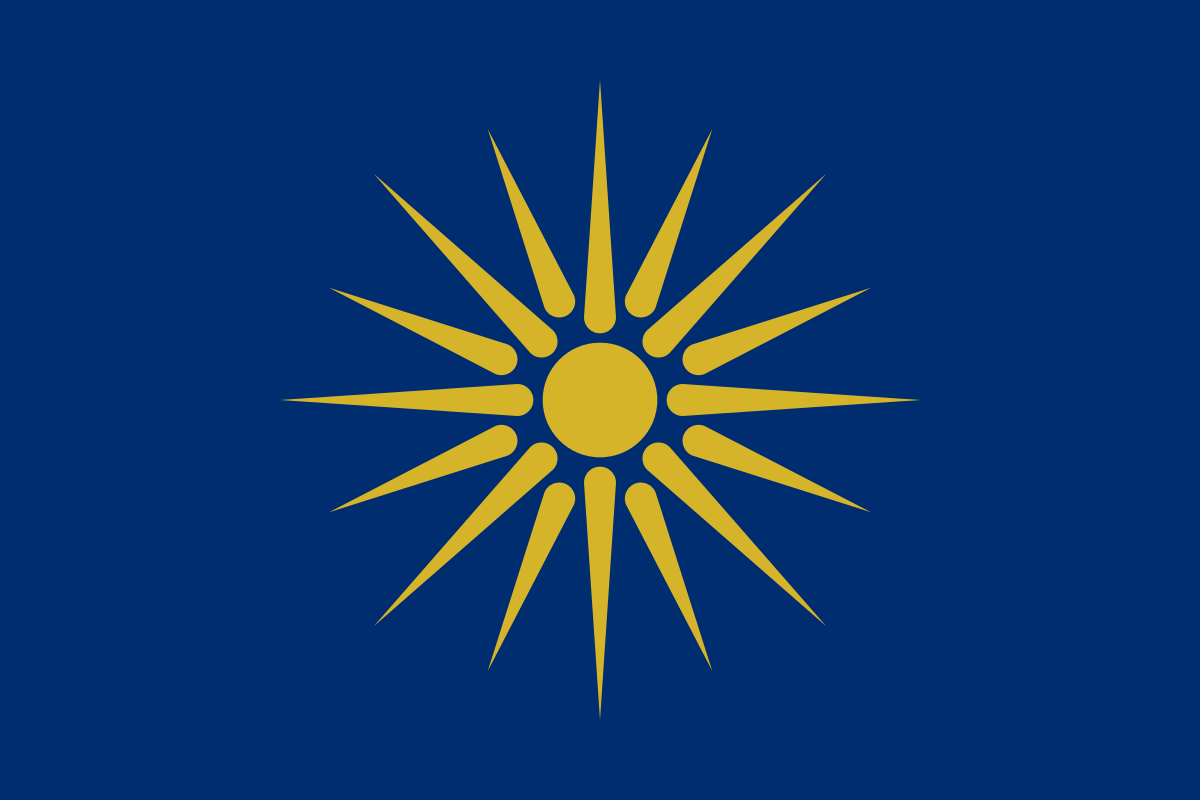
Views: 250
By all accounts from Greece and Macedonia, a majority in both countries will be happy that a new name for Macedonia has been agreed upon by the governments in Athens and Skopje. After years of facing Greek vetoes to join the European Union and NATO under the name “Republic of Macedonia,” the Greek government agreed to drop its opposition, so long as Macedonia change its name to “Northern Macedonia.” Northern Greeks always objected to Macedonia’s use of that name because they believed it represented a goal of Slavic and Albanian Macedonians to lay claim to the northern Greek region that also uses the name Macedonia.
 Ever since Macedonia declared independence from Yugoslavia 25 years ago, Greece insisted that the United Nations call the country the “Former Yugoslav Republic of Macedonia,” which became an acronym known as FYROM. Some nations recognized the country as the Republic of Macedonia, while others opted for FYROM.
Ever since Macedonia declared independence from Yugoslavia 25 years ago, Greece insisted that the United Nations call the country the “Former Yugoslav Republic of Macedonia,” which became an acronym known as FYROM. Some nations recognized the country as the Republic of Macedonia, while others opted for FYROM.
The Macedonians also claimed Alexander the Great, a Greek national hero, as one of their own and named their international airport after the ancient conqueror. As part of Macedonia’s name change, Alexander the Great International Airport has been changed to Skopje International Airport. Macedonian history books are to be altered to reflect that Northern Macedonians are not ancient Macedonians. Actual Macedonians, claims Athens, are northern Greeks or “Aegean Macedonians.”
Macedonians, who are now governed by a George Soros implant named Zoran Zaev, are undergoing the type of cultural change that was externally visited upon the nation of Rwanda after General Paul Kagame, a Rwandan expatriate from Uganda, seized power after a very bloody genocide in 1994. Rwanda forced Rwandans to scrap their native French for English, the French-like national tricolor was replaced with a new flag, and Rwanda joined the Commonwealth of Nations, which is led by the British queen. The only thing that did not change in Rwanda was the name of the country, although one could not put it past Kagame to revert back to the colonial name of “Ruanda.”
Northern Macedonia was agreed upon by Macedonia and Greece after several other options were discussed. The Greeks favored the name “Republic of Vardar Macedonia,” but that was rejected by the Macedonians, who preferred “Republic of New Macedonia.” The United Nations mediator said there were other candidates for the name, including the Republic of Upper Macedonia and Republic of Macedonia (Skopje).
Greece suggested many other names for their northern neighbor, including “Dardania and Paeonia,” the ancient names for the region; South Slavia, the Vardar Republic, the Central Balkan Republic, and the Republic of Skopje. The Macedonians offered up the Constitutional Republic of Macedonia, the Democratic Republic of Macedonia, the Independent Republic of Macedonia, and the New Republic of Macedonia.
Names now mean everything in an era of “new nationalism.” The U.S. ambassador to Israel, David Friedman, a former hack attorney for Donald Trump, has referred to the illegally-occupied West Bank as “Judea and Samaria,” a hat-tip to the Jewish illegal settlers who want Israel to annex the West Bank and have Israel become a full-blown apartheid state, with Palestinians treated as inferior “untermenschen.” There are reports that after having moved the U.S. embassy from Tel Aviv to Jerusalem, the Trump administration is a hair-trigger away from recognizing all of Jerusalem, including illegally-occupied East Jerusalem, as the capital of Israel and recognizing Israel’s annexation of the Golan Heights from Syria. That would leave the open-air Palestinians ghetto of Gaza as a target for Israeli re-annexation. Menacingly, the Trump administration is already calling Gaza “southern Israel.”
There are other proposals afoot for name changes. In 2017, South African Minister of Arts and Culture Nathi Mthethwa sparked a fierce debate when he suggested that South Africa should become “Azania,” a name with Greek origins. That proposal was tabled quickly by a government that did not want self-engineered headaches to be piled on all of its other problems. Likewise, there is little interest in the Central African Republic to revert to the country’s French colonial name of Ubangi-Shari, two rivers that converge in the country.
The South Africans may want to think twice about Azania. South Sudan considered using that same name upon independence from Sudan in 2011. Could the world survive with two Azanias? Why not? There have been two independent Congos since the 1960s — the former French Republic of Congo and the former Belgian Democratic Republic of Congo (DRC). The DRC did change its name to Zaire during the dictatorship of Mobutu Sese Seko, but changed it back again after his ouster in a popular rebellion. The South Sudanese apparently liked the name South Sudan, after rejecting, along with Azania, the names Nile Republic, Kush Republic, and Juwama. Some South Sudanese still want a name change, favoring Tochland or Savannah.
If pro-independence activists get their way in civil war-ravaged Yemen, South Yemen will re-emerge as an independent nation and that might provide some solace to South Sudan and South Africa, but not South Korea, which, after Trump’s recognition of the north as the Democratic People’s Republic of Korea, or DPRK, will now insist on being called the Republic of Korea or “ROK.”
On the occasion of his 50th birthday, Swaziland’s King Mswati III — who has 15 wives, 12 less than Trump’s known number of ex-wives — proclaimed that the name of his country would henceforth be known as eSwatini.
Kazakhstan is no longer Kazakhstan. The nation’s president, Nursultan Nazarbayev, has decreed that the Kazakh language will no longer be written in the Cyrillic alphabet but Latin. “Qazaqstan” will now be joining Qatar as the only two countries in the UN General Assembly’s “Q” section. Nazarbayev also dislikes the appendage “stan” on the name of his country, He is on record in favor of dropping “stan” and calling his country Qazaq Yeli, or “Land of the Kazakhs.”
Some politicians in Kyrgyzstan also want to drop the “stan” part of their country’s name and have it officially be known as Kyrgyz Land or Kyrgyz Zher, the name in the Kyrgyz language. These politicians bemoan the fact that their nation is often confused with Kurdistan, which, thanks to Turkish and Iraqi pressure, is not an independent country represented at the UN. The Kyrgyz have a point. The Czechs, in pushing the name Czechia, did not seem to mind that some people confused the name with Chechnia, a Russian autonomous republic.
In 2013, the small half-island nation of East Timor announced it was changing its name to Timor-Leste, a hat-tip to its history as a Portuguese colony. Not to be left out of the Portuguese nostalgia, Cape Verde changed its name to Cabo Verde that same year.
 The President of the Philippines, Rodrigo Duterte has entertained the possibility of changing the name of the country to something that no longer honors Spanish colonialists and their colonizing monarch, King Philip II. There have been moves in the Philippines Congress to establish a geographical renaming commission to come up with a new name. One idea floated is the Tagalog name, Haring Bayan.
The President of the Philippines, Rodrigo Duterte has entertained the possibility of changing the name of the country to something that no longer honors Spanish colonialists and their colonizing monarch, King Philip II. There have been moves in the Philippines Congress to establish a geographical renaming commission to come up with a new name. One idea floated is the Tagalog name, Haring Bayan.
Country name changes are tough on some merchandise retailers. In 1997, the American Safety Razor Company reintroduced the Burma-Shave brand of shaving soap. But Burma had become Myanmar nine years earlier and “Myanmar-Shave” lacked a certain appeal. All the marketers of Ceylon tea were aghast in 1971 when the island nation changed its name to Sri Lanka.
If the independence referendum in New Caledonia in November of this year results in a majority vote for breaking colonial ties with France and going it alone, the country’s name will be Kanaky. The name is an homage to the native Kanak people. If Greenland opts for independence from Denmark, it’s goodbye Greenland and hello Kalaallit Nunaat, the Inuit name for the country.
Resurgent nationalism across the globe are keeping mapmakers and diplomats busy. Country name changing is the current vogue and there are no signs that it will end anytime soon.
Originally published on 2018-06-21
About the author: Wayne Madsen is an investigative journalist, author, and syndicated columnist. He is a member of the Society of Professional Journalists (SPJ) and the National Press Club.
Source: Strategic Culture Foundation
Origins of images: Facebook, Twitter, Wikimedia, Wikipedia, Flickr, Google, Imageinjection & Pinterest.
Read our Disclaimer/Legal Statement!
Donate to Support Us
We would like to ask you to consider a small donation to help our team keep working. We accept no advertising and rely only on you, our readers, to keep us digging the truth on history, global politics, and international relations.
FOLLOW US ON OUR SOCIAL PLATFORMS








